|
|
|
|
Nau mai haere mai — Happy New Year and welcome (back) to your weekly newsletter.
I hope your summer break has been restful and refreshing and 2021 has begun well. On the national and international fronts, the year has kicked off with momentous events: in the US with the Capitol riots, the second impeachment of Donald Trump and the inauguration of Joe Biden; here in Aotearoa with a case of a new COVID-19 strain in the community and a sudden halt to nascent travel bubbles.
And it’s still only January.
So, you’ll find plenty to read here and on our home page about these and other issues, and we’ll be updating our coverage regularly to bring you the best analysis, original research and informed opinion as the year unfolds.
In the meantime, there is plenty of summer left and we’re looking forward to being part of yours. Thanks as always for your continued support. Until next time, mā te wā and all the best.
|
Finlay Macdonald
New Zealand Senior Editor & NZ Editor: Politics, Business + Arts
|

|
|
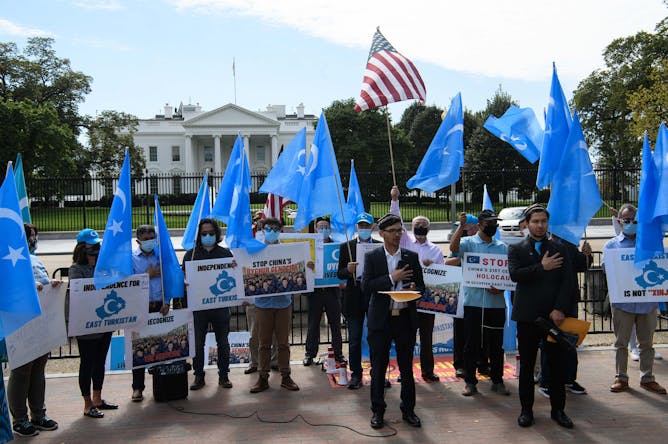
A Uyghur rally to protest the 71st anniversary of the People’s Republic of China in front of the White House on October 1, 2020.
GettyImages
Alexander Gillespie, University of Waikato
When your 'friend' and biggest trading partner is accused of genocide you can't ignore it. But meaningful change will take more than words.
|
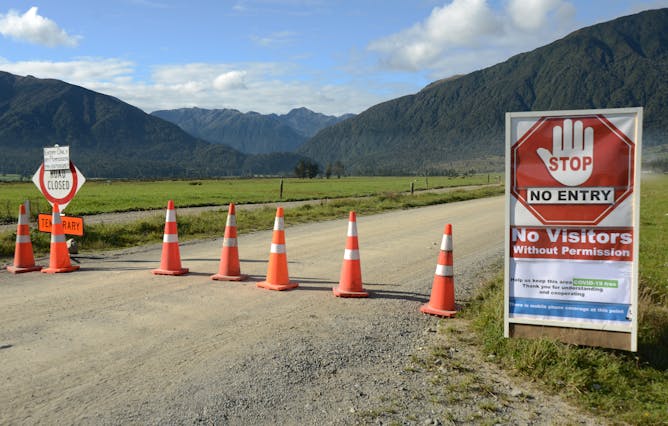
Shutterstock/Lakeview Images
Michael Plank, University of Canterbury; Shaun Hendy
A variant with a higher transmission rate is much more dangerous than one with just a higher fatality rate.
|
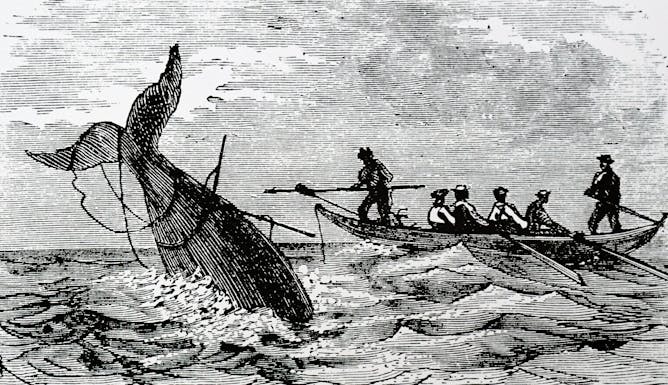
GettyImages
Kate Stevens, University of Waikato
The whaling story behind 'Soon May the Wellerman Come' reminds us of the crucial connections between Māori and Europeans that shaped early 19th century settlement.
|

Shutterstock/Liudmyla Guniavaia
Michael P. Cameron, University of Waikato
If we want a liveable future for our grandchildren is it ethical to reduce the number of people being born into that world?
|

www.shutterstock.com
Ilan Noy, Te Herenga Waka — Victoria University of Wellington; Ami Neuberger, Technion - Israel Institute of Technology
As the eradication of polio and the successful rollout of AIDS treatments have shown in the past, global cooperation in the face of COVID-19 is possible.
|
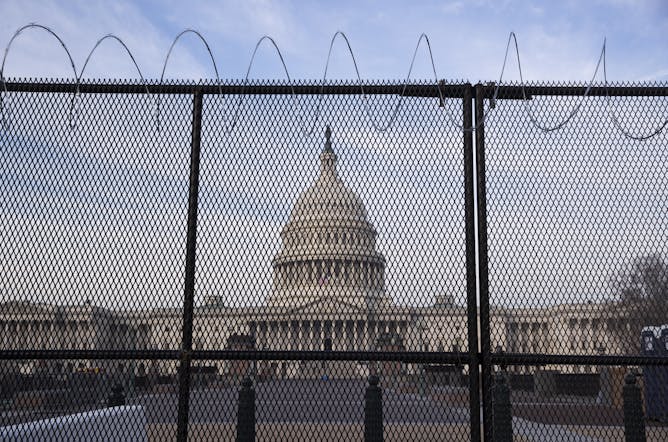
AAP
Robert G. Patman, University of Otago
Incoming US president Joe Biden can't mend a broken US democracy alone. Other liberal democracies, including NZ, need to get involved.
|
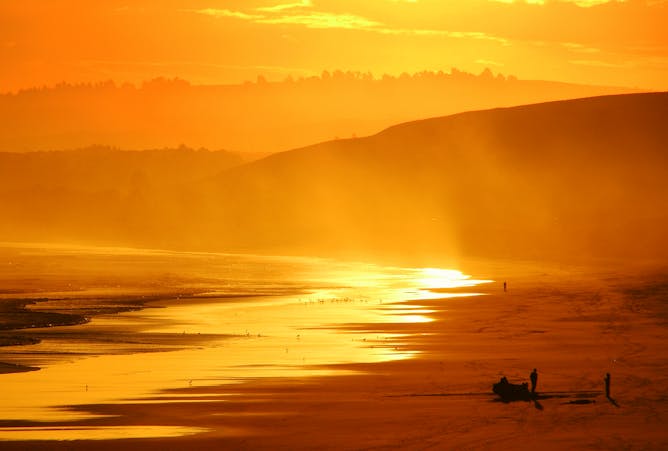
Flickr/Stephen Murphy
James Renwick, Te Herenga Waka — Victoria University of Wellington
A new measure of average weather days in New Zealand puts the temperature on the rise, again.
|

www.shutterstock.com
Verica Rupar, Auckland University of Technology; Tom De Smedt, University of Antwerp
Analysis shows how Trump and Twitter spread QAnon extremism from the US to Europe, and how hard it will be to undo the damage.
|

www.shutterstock.com
Jonathan Barrett, Te Herenga Waka — Victoria University of Wellington
Once paid, tax becomes the property of the government. Pretending otherwise undermines the basic principles of the social contract.
|
From our foreign editions
|
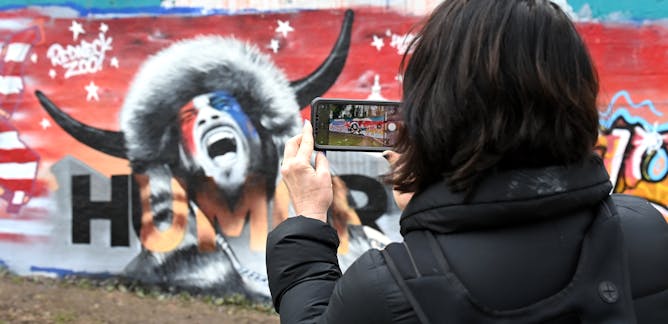
Kenneth Ladenburg, Arizona State University
For many extremist groups, a primary goal is to spread their ideology. Costumes and uniforms – even ridiculous ones – are a form of spectacle that can garner attention and interest.
| |

Wendy Wall, Binghamton University, State University of New York; Christian K. Anderson, University of South Carolina; Daisy Martin, University of California, Santa Cruz
The whole world saw the Jan. 6 attack on the US Capitol. How will the textbooks read by America's students describe what took place?
|

Rhoda E. Howard-Hassmann, Wilfrid Laurier University
The turn towards authoritarianism, xenophobia and racism in Western democracies makes it unlikely that former Western slave-trading nations will agree to reparations in the near future.
| |

Pascale Lehoux, Université de Montréal; Lysanne Rivard, Université de Montréal
Artificial intelligence is supported by an infrastructure of hardware and software that is growing increasingly present in our lives, yet remains hidden in plain view.
|

Frederik Pedersen, University of Aberdeen
The story of the 'Cadaver Synod' tells us that in some cases, even the departed can be held to account.
| |

Willem Hanekom, Africa Health Research Institute (AHRI); Tulio de Oliveira, University of KwaZulu-Natal
Scientists have observed that 501Y.V2 has quickly become "dominant" among multiple variants that have been circulating in the South African population.
|
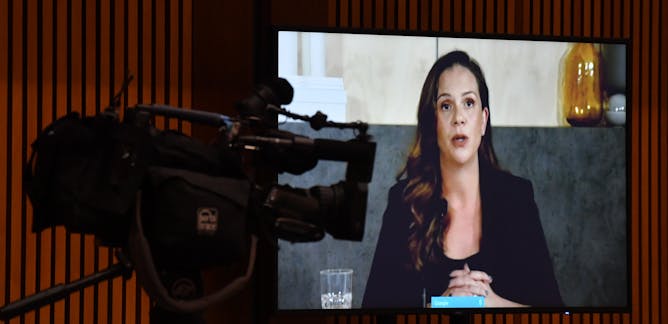
Tim Dwyer, University of Sydney
The titans of online advertising don't want to be forced into putting a value on linking to news.
| |
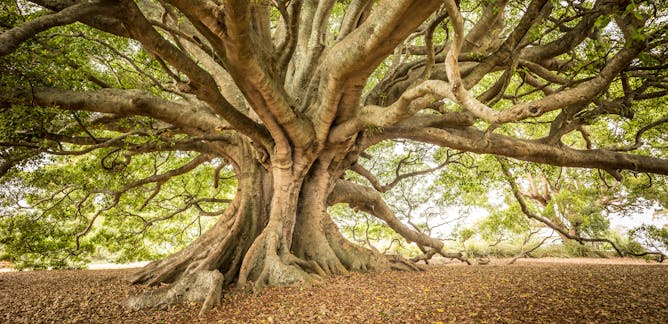
Gregory Moore, University of Melbourne
As you swelter during this heatwave, it may not be all bad news for our urban and natural environments. Sometimes, positive outcomes arise when and where we least expect them.
|
|
|
| |
| |
| |
| |
| |
| |
|
|
|
|
|
|
|